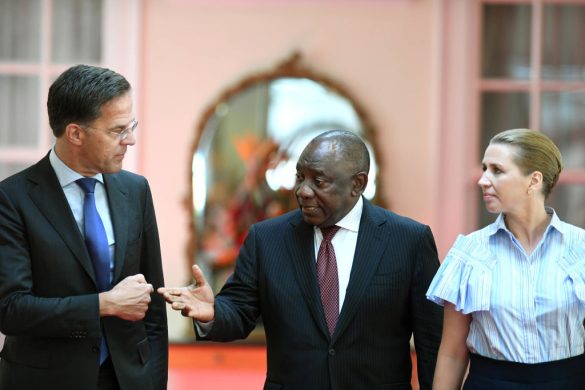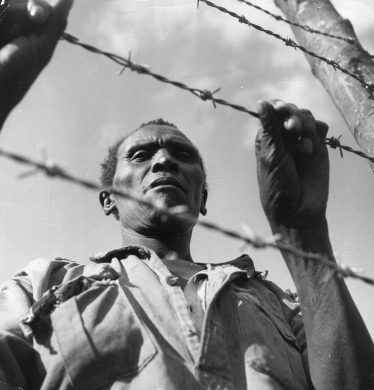U-landsbistand fra nord til syd og fra rig til fattig er … so last year! Ifølge ny rapport donerer Afrikas egne rige hvert år godt 37 milliarder kr. til – Afrika. Også middelklassen ventes at bidrage. Vækst i Afrika, økonomisk krise i den vestlige verden har skubbet på tendensen.
NEW YORK, 11 April 2014 (IRIN) – The emergence of a new breed of super-rich individuals in Africa has been accompanied by the steady growth of Western-style philanthropic foundations and other structured forms of giving.
An estimated seven billion US dollar (ca. 37,5 milliarder DKR) is given every year by Africa’s “high net worth individuals (HNWIs)”, according to a recent report by the African Grantmakers Network.
Strategisk filantropi
Sustained economic growth in Africa, accompanied by the economic downturn in the West, has contributed to the “rapid emergence of structured forms of strategic philanthropy by wealthy Africans”, notes the report.
Although economic growth has seen a deepening divide between rich and poor, it has also spawned a rising middle class, which the report estimates could make a further 22 billion dollar available in combined philanthropic giving.
Lokalt-forankrede modeller nødvendige
But some in the field warn that unless the 54 countries on the continent – each with its own context, traditions of giving and unique contemporary challenges – develop locally-driven, community-based philanthropic models, some of these new patterns of giving may not change the lives of the poor in the long run.
They also site the need for more and better data to track philanthropic money.
The same report notes that only one billion of the seven billion dollar given could be traced, and that of the Forbes list of the 40 richest Africans only 22 had philanthropic initiatives that involved them or their families.
But the report notes that many of the recently-rich may underreport their giving, partly because of “sensitivities about the source of their wealth” and potential tax implications.
It also notes the lack of an “enabling policy environment” for structured philanthropy in many countries.
Mindre end én procent af formuen
Africa’s wealthiest are giving less than one percent of their net worth, versus nine percent in Europe, Asia and Latin America, says the report, and many of the richest families are not formally engaged in philanthropy.
“Some of these doubtless give anonymously or informally but the data suggests that while the very wealthiest are coming under some pressure to do something, there is a large group of lesser-known HNWIs that are currently not feeling compelled to engage in philanthropy on the continent.”
Nigerias nyrige fører an
Nevertheless the philanthropy bug is fast catching on, with the nouveau riche in Nigeria leading the way, and those in South Africa, Kenya and Zimbabwe following suite.
Many are using business models to spread their wealth – by nurturing small businesses and educating future entrepreneurs, for example.
There is a rich tradition of formalized giving in Southern Africa, where the wealthiest families have long been concentrated, but prominent new generation givers include Patrice Motsepe, Tokyo Sexwale, Cyril Ramaphosa and Jay Naidoo from South Africa, and Strive Masiyiwa from Zimbabwe.
Among Nigeria’s prominent givers are Tony Elumelu, Theophilus Danjuma and Aliko Dangote.
Et kontinent med økonomiske muligheder
Elumelu, founder of the Tony Elumelu Foundation, described Africa as “a continent of economic opportunities” where the “return on investment is huge… The best way to sustainably alleviate poverty across Africa is through private sector development and ultimately job creation,” he said in an interview on CNN several months ago.
His foundation helps nurture small and medium businesses by offering skills from top business school graduates, among other endeavours.
Filantropi er blevet moderne
Institutions like the African Grantmakers Network, set up in 2009, with offices in Dakar and Johannesburg, Elumelu’s foundation (2010) and recently the African Philanthropy Forum that launched in Addis Ababa in February this year, are signs that institutionalized giving by the wealthy is taking root.
Sheilagh Gastrow, executive director of South African based Inyathelo, an organization that strengthens local NGOs through grant-making, says there has been a “momentous global awareness around philanthropy and what’s happening in Africa is part of that. It’s not unique. The rise in philanthropy is trending right now,” she says, noting:
The very wealthy tend to network with each other, educate their children at the same places and establish personal connections, so it is no surprise that the “high end buzz” has spread to Africa.
She cites the Giving Pledge as a phenomenon that is prompting many wealthy people to join Bill Gates, the richest man in the world, in giving most of their wealth to philanthropy.
South African billionaire Patrice Motsepe was the first African to sign the pledge a year ago.














